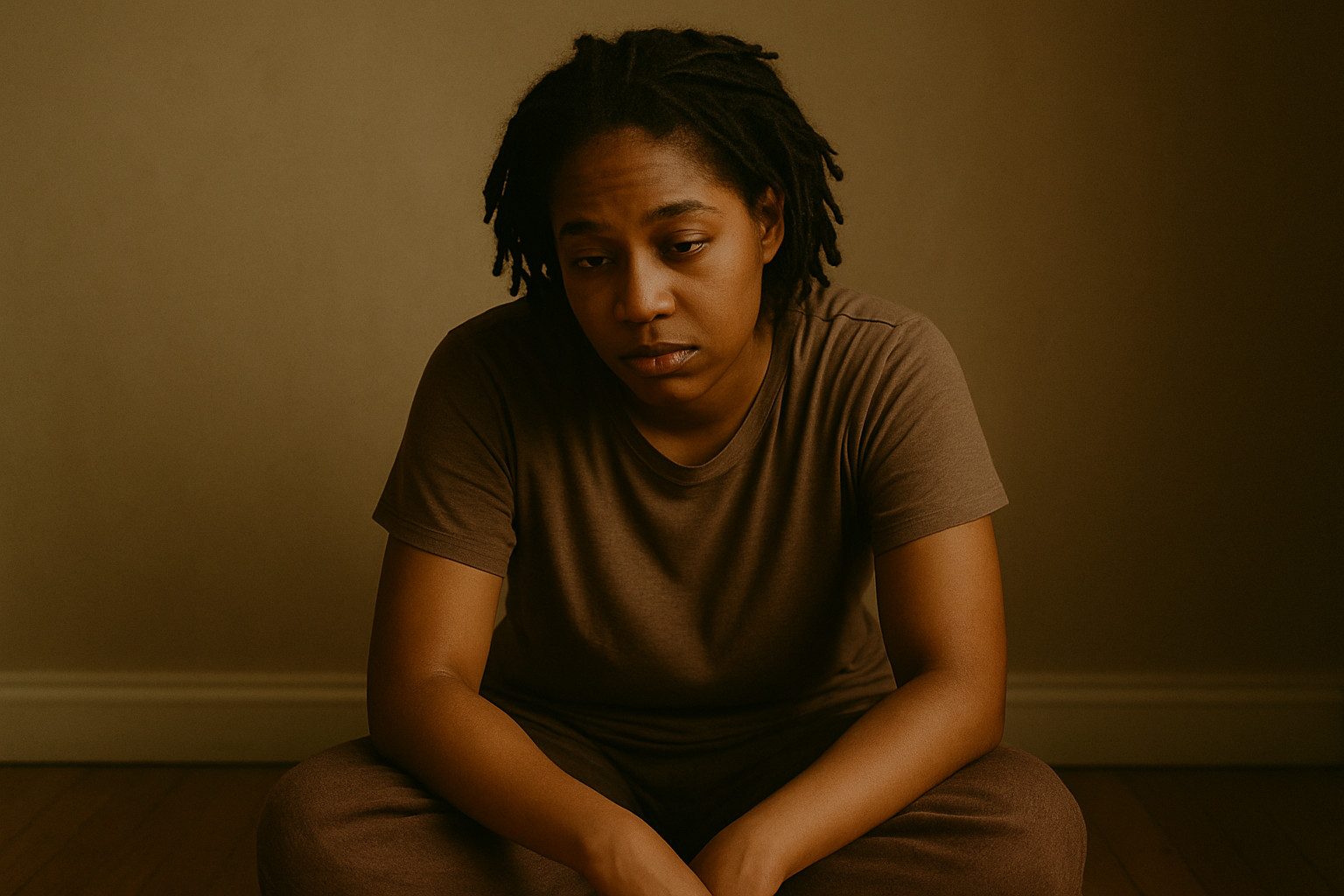How fatigue carries grief in the body
Grief is loud at first.
It crashes in. It takes up space. It knocks the wind out of your lungs and leaves you grasping for air, for understanding, for anything to hold onto. But over time, it quiets; not because it leaves, but because it sinks in.
It moves inward.
And when it does, it starts to ride shotgun with fatigue.
I’ve come to recognize a particular kind of tired that doesn’t come from lack of sleep. It’s not the tired from doing too much or not resting enough. It’s the tired that lives in your bones, in the soft tissue behind your eyes, in the pit of your stomach where emotion settles when there are no words left.
That’s grief-fatigue. And it carries more than exhaustion. It carries memory, weight, energy, and the ongoing, silent labor of holding pain.
The Body Keeps It. All of It.
We hear the phrase “the body keeps the score” often enough, but when you’re in it, really in it, you realize it’s not a metaphor. It’s a map.
Grief registers in the body like a signal that’s been looping on repeat. If it’s not acknowledged, it doesn’t just vanish. It burrows. It takes form.

- Tight shoulders.
- Jaw tension.
- A spine that curves just a little more inward, guarding the heart.
- A deep tiredness that doesn’t respond to naps or tea or a weekend away.
You can’t hustle your way out of grief. You can’t outrun fatigue that’s rooted in loss. You have to meet it—somatically, spiritually, energetically.
Fatigue Is the Language of Unspoken Grief
Some people feel grief as sadness. Others as anger. Others as numbness. But fatigue? Fatigue is the grief that hasn’t spoken yet. It’s the part of the process that hasn’t found its voice or hasn’t been given the space to speak.
It shows up when you’ve been holding it together too long. When you’ve performed normalcy for too many days in a row. When you’ve smiled through another conversation, sat through another meeting, cooked another meal, all while pretending you weren’t breaking inside.
Fatigue is the aftermath. The echo. The cost of containment.
And it’s not weakness. It’s not laziness. It’s a somatic signal that your system is doing too much, carrying too much, processing too much, too fast, with not enough space to fully land.
Energy Work: Not a Cure, but a Clearing
In the Sacred Obsidian space, we don’t talk about “fixing” grief. That would be a betrayal of its intelligence.
What we can do is support the body’s capacity to carry it, without letting it calcify.
Energy work isn’t a magic wand, but it is a mirror. It reflects back where we’re congested, where energy has frozen, where grief has taken hold and shaped our flow. In sessions, I often feel that grief-fatigue as a dense heaviness around the shoulders or an immovable stillness in the solar plexus. Sometimes it’s like fog around the crown. Other times it pulses under the ribs, where breath keeps catching.
Clearing these spaces isn’t about eliminating grief—it’s about letting it move. It’s about giving it space to evolve from paralysis to presence.
We begin to unwind.
We make space for breath.
We allow the energy body to catch up with the emotional one.
Somatic Healing: Let the Body Speak
If your grief is living in your fatigue, your body is trying to tell you something.
It might be telling you:
- “I’m still holding that loss.”
- “I never had time to mourn.”
- “I’m protecting you from feeling too much at once.”
Somatic healing invites you to listen without judgment. To place your hand on the part of you that aches, not just physically, but emotionally. To ask: What’s here? What do you need?

Sometimes the body just wants to be witnessed.
Sometimes it needs breath.
Sometimes it needs tears, stillness, or sound.
We forget how healing sound can be—moaning, humming, sighing deeply. These aren’t just reactions; they’re ancient release mechanisms. Your nervous system knows what to do if you let it.
Permission to Rest Isn’t Optional—It’s Sacred
One of the most radical things you can do when you’re carrying grief-fatigue is give yourself permission to stop performing wellness.
You don’t need to force gratitude.
You don’t need to be productive.
You don’t even need to be okay.
You need to be real. And often, being real means resting. Not just sleeping, but deep rest, the kind that allows for nothingness, for not-doing, for being held by the earth without expectation.
Rest is where the body processes. It’s where the nervous system integrates. It’s where grief begins to metabolize into wisdom.
A Final Word for the Weary
If you’re reading this and thinking, This is me, I want you to know you’re not alone.
Your fatigue is not a failure. It’s a message.
Your body is not broken. It’s in process.
Your grief is not too much. It’s sacred.
Let your body be what it is …tired, tender, alive.
Let the grief move. Let the energy shift. Let yourself rest.
Your healing doesn’t have to be dramatic. It just has to be yours.

